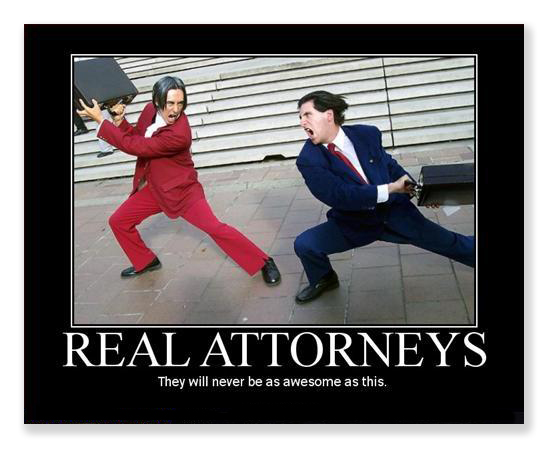We’re still doing a weekly newsletter… we’re just posting pieces of it every day. The news is fresher this way…
MEAN WHAT YOU SAY
Mo Khawar was part of an international gang that used credit card readers at stores to steal card information from consumers. The organization used the stolen data to create counterfeit ATM cards, which were then used to fraudulently withdraw cash from victims’ bank accounts. Mo’s job was to set up the card readers – called skimmers – in the stores.
 The skimmers would pull data from the credit cards’ magnetic stripes. For the crime to work, the conspirators had to be able to rely on that data – that it really meant what it said, in a manner of speaking – in order to create the phony cards needed to rip off consumers. Mo’s mistake – besides the obvious one of being involved in the conspiracy to begin with – was that he didn’t appreciate that meaning what you say applies just about everywhere, but perhaps nowhere more than in federal court.
The skimmers would pull data from the credit cards’ magnetic stripes. For the crime to work, the conspirators had to be able to rely on that data – that it really meant what it said, in a manner of speaking – in order to create the phony cards needed to rip off consumers. Mo’s mistake – besides the obvious one of being involved in the conspiracy to begin with – was that he didn’t appreciate that meaning what you say applies just about everywhere, but perhaps nowhere more than in federal court.
After Mo got arrested installing skimmers in the Netherlands, he ended up in U.S. District Court for the Southern District of New York. There, he signed a plea agreement, agreeing to plead to a conspiracy count. The plea agreement specified that the Guidelines would apply to his sentence. Importantly, Mo agreed not to challenge any sentence of 87 months or less, including not bringing direct appeals or motions under 28 U.S.C. § 2255.
 At the plea hearing, the court asked the usual questions required by F.R.Crim.P. 11, and Mo gave the usual answers. What he apparently did not understand was that the back-and-forth with the judge was more than ritual mumbo-jumbo. The questions were substantive, and the answers were treated as binding.
At the plea hearing, the court asked the usual questions required by F.R.Crim.P. 11, and Mo gave the usual answers. What he apparently did not understand was that the back-and-forth with the judge was more than ritual mumbo-jumbo. The questions were substantive, and the answers were treated as binding.
Mo told the judge that he was satisfied with his counsel, that he was competent to enter an informed plea, and that he had agreed to the terms of the plea agreement. The court made sure Mo knew he could “be sent to prison for up to seven and a half years.” The government told the court Mo had agreed to “a waiver of his right to appeal a sentence within or below the stipulated guidelines range,” and Mo confirmed on the record that he had done so.
At sentencing, Mo did not object to the presentence report, and argued for a below-Guidelines sentence. The government asked for a Guidelines sentence. The court sentenced Mo to 87 months.

Promptly on reaching prison, Mo filed a habeas petition under to 28 U.S.C. § 2255, alleging that his attorney was ineffective. He claimed sentencing range in his plea agreement was based on an inaccurate monetary loss estimate, and that his lawyer thus was his attorney should have objected to the disparity in sentences among Mo and his co-conspirators.
Last week, the Southern District of New York turned him down, reminding Mo (and the rest of us) that words have meaning. Mo waived his right to file a 2255 motion, and the court said it would hold him to it.
Waivers like the one Mo signed are common in plea agreements, and they are commonly enforced. However, even where the “plain language of a plea agreement bars a collateral attack, a defendant may still challenge “the constitutionality of the process by which he waived those rights.” A waiver of the right to appeal is not enforceable where the plea agreement was entered into involuntarily and unknowingly, or without effective assistance of counsel. In other words, if your lawyer was ineffective in telling you to waive your rights, the waiver is null. On the other hand, the waiver is effective “with respect to claims of ineffective assistance of counsel that are limited to post-plea events (e.g. sentencing).”
In his plea agreement, Mo agreed not to file a direct appeal or bring a collateral challenge under 28 U.S.C. § 2255 if he received a sentence of 87 months’ imprisonment or less, and that’s exactly what he got. Mo didn’t argue that he entered into the plea agreement unknowingly, but rather that his lawyer should not have encouraged him to sign the plea agreement because the stipulated monetary loss amount was too high. Plus, he said, his attorney dropped the ball on a whole sheaf of sentencing issues.
The court held that the only claim Mo could make in his 2255 motion that would get past the waiver was that the attorney should not have encouraged him to sign the plea agreement because the amount was too high. All his other claims were waived.
 Even with that, Mo was hardly home free. His ineffective assistance claim on the plea deal, the judge said, “is grounded in the proposition that had he rejected the plea agreement, the government would have eventually relented and offered him a deal with more favorable terms.” Mo suggested his lawyer could have forced the government to prove the stipulated monetary loss amount in the plea agreement, and then to offer a plea offer with a lower stipulated sentencing range. But he had no proof that the government could not have proven the $7-$20 million loss range, or that it would have made him a better deal.
Even with that, Mo was hardly home free. His ineffective assistance claim on the plea deal, the judge said, “is grounded in the proposition that had he rejected the plea agreement, the government would have eventually relented and offered him a deal with more favorable terms.” Mo suggested his lawyer could have forced the government to prove the stipulated monetary loss amount in the plea agreement, and then to offer a plea offer with a lower stipulated sentencing range. But he had no proof that the government could not have proven the $7-$20 million loss range, or that it would have made him a better deal.
Mo’s beef was that his lawyer had missed in his estimate as to the final sentence. But attorneys’ “predictions of a defendant’s ultimate sentence under the United States Sentencing Guidelines generally do not constitute ineffective assistance of counsel because such predictions are, by nature, only guesses or estimates.” It’s enough that the defendant knows of the possibilities, and the courts cover those in plea hearings. Here, Mo knew the conspiracy count carried a 20-year maximum. As long as he was sentenced to that or less, his attorney’s prognostications were no better than our pick that the Indians would crush the Cubs. Maybe reasonable, maybe crazy – but dead wrong, and that’s the way it goes.
 Mo claimed he only accepted the plea agreement “after much encouragement from counsel” and assurances from counsel that he would receive a below-Guidelines sentence. The court said, “Even assuming Khawar’s counsel actually made these statements, they cannot be the basis for an ineffective assistance claim because they were merely estimates… Moreover, at his plea allocution, Khawar acknowledged that the court could sentence him to prison for up to seven and a half years… and that he understood the sentence was ultimately up for the court to decide at a later date.”
Mo claimed he only accepted the plea agreement “after much encouragement from counsel” and assurances from counsel that he would receive a below-Guidelines sentence. The court said, “Even assuming Khawar’s counsel actually made these statements, they cannot be the basis for an ineffective assistance claim because they were merely estimates… Moreover, at his plea allocution, Khawar acknowledged that the court could sentence him to prison for up to seven and a half years… and that he understood the sentence was ultimately up for the court to decide at a later date.”
Those words have meaning, and defendants are presumed to be consenting adults. Mo was aware of his sentencing exposure upon pleading guilty. That being the case, nothing his lawyer may have predicted matters in the least.
Khawar v. United States, Case No. 15-05784 (S.D.N.Y. Oct. 26, 2016)

